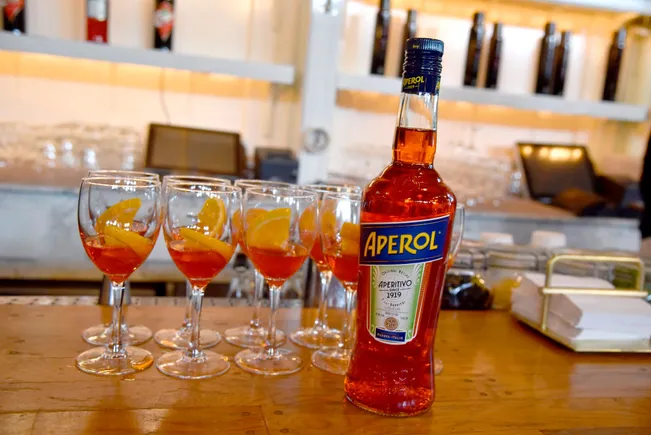
Dive Brief:
- Italian spirits business Campari sees challenges in the U.S. spirits market “persisting” as retail stores tighten stocks amid muted demand, the company’s CFO and interim co-CEO Paolo Marchesini told investors this week.
- Marchesini said the company plans to offload some of its spirits brands in order to cut costs. Its global priority brands, like Skyy Vodka and Aperol, he said, will not be for sale despite their current challenges.
- As cash-strapped consumers act selectively with their purchases, spirits producers are altering their approach in hopes of retaining existing consumers through tailored pricing and distribution strategies.
Dive Insight:
Campari — the owner of dozens of spirits brands from whiskeys to rums to aperitifs — believes the spirits market will stabilize in 2025 as consumers grow more confident in their economic situation. In the meantime, the company is focused on growing brands in emerging and trendy categories.
Marchesini pointed to the growth of its brands in U.S. bars and restaurants as a highlight in its most recent quarter, growing 1% compared to a 6% decline across the category. Marchesini told investors the company’s current difficulties are cyclical, and the logic of selling some brands is “about simplifying portfolio management.”
One brand the company pointed to as a positive asset is Espolon tequila, which saw 18% growth so far this year. The CFO said the brand, which is benefiting from overall growth in tequila in recent years, is in a unique position. Espolon is gaining market share as consumers trade down from more expensive “super-premium” varieties of the spirit, while other drinkers trade up from the least expensive varieties, he said.
“We see it in a sweet spot at $27 to $29 per bottle, so it can only accelerate,” Marchesini said.
In order to revive demand for its spirits, Campari is also trying new pricing strategies in a bid for competitive advantage. In select states, it is lowering the price of Skyy relative to rival vodka brands, which the CFO said is proving beneficial.
“It seems that overall, we’re achieving net positive gross profit impact. So, we will be more focused on a state-by-state basis as opposed to going broad with one single price policy overall,” Marchesini said.
